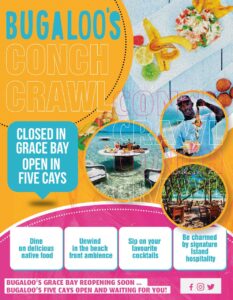#TurksandCaicos, October 26, 2021 –What could be more rewarding for a small developing country like the Turks and Caicos Islands, other then creating additional educational opportunities for their citizens?
In my opinion, it’s the latter of the two, but it’s yours to ponder.
What’s troubling is, at the rate of incarceration, our prison system in the Turks and Caicos Islands could soon be at capacity.
With that being a real possibility, what are some of the proactive steps currently being taken to help secure post-released employment and or participate in education and life skills training?
Many of our young men may not have any interest in attending college or university, but has acquired other skills over the years. So, what other opportunities do we have for this segment of the population in terms of further education or trade?
Look around the country, you will find most of our workforce revolves around the service and trade related industry. Many of these workers posses untapped skills that only need to be cultivated in their area of interest or expertise.
With that in mind, offering vocational education will allow students and young adults to gain the necessary practical experience with a renewed focus in their chosen field of study or career path. This is something they may have otherwise never been able to achieve through traditional classroom learning in academia.
In the 2021 PNP manifesto under education, labor and employment, it clearly states their commitment to the following:
“Create learning opportunities for students that caters to different interest, strengths and learning needs as well as provide the diverse skills that the country requires”.
Henceforth, it’s my belief government should make further provisions to subsidize apprenticeships for our young people, so it becomes more then just platitudes.
Let’s give credit where credit is due, the previous administration was on the right track when a proposal was made to launch a vocational technical school. Unfortunately, the current pandemic may have hampered those efforts.
Nevertheless, the idea was brilliant, and this current administration should continue to embark on this initiative and see that it materializes.
This initiative should move forward, even if it means using the leverage of our BBB+ credit rating borrowing power while we are in the position to do so. It is my belief the return on investment could be priceless.
Often times, countries mimic each other with strategies to tackle or improve different situations, but mass incarceration should not be one of them.
Yes indeed, proper facilities are needed to house and secure those committing heneous crimes.
Nevertheless, if we have learned anything from a developed country like the United States in particular, which has the highest incarceration rate per capita, we can not arrest or incarcerate our way to crime reduction.
If anything, it should be a motivation to galvanise prison reform and readdress certain issues to help reduce the prison recidivism rate.
We should be very careful with what strategies we mimic without doing our own comprehensive studies to determine the societal impact or long term benefits of an initiative.
Given the population of Providenciales, it would be the ideal location for such school.
However, the existing infrastructure in Grand Turk, which is currently being utilized as a community college could also suffice.
With the separate workshops already in place, along with some much needed renovations, this location would make an easy transition for maybe two or three training classes.
It would be in the best interest of our country as well as big corporations, to support such initiative.
Case in point: Prior to the pandemic, every year a foreign company was hired to come in to train and certify our boat operators on primarily international boating standards.
Depending on the location and whether it’s a recertification or a new certification, the cost could range anywhere from $360-$650 per person, in addition to travel and hotel accommodations.
With TCI having some of the best and brightest boat captains, could this be a customized curriculum or certification offered at a trade school?
This particular curriculum should include but not limited to, local regulations best practices and navigational charts for local waters to help mariners better understand the skills they are learning.
This could also be a joint effort between the school, DECR and Maritime departments with qualified personnel to assist with facilitating such training.
Other courses of interest should include hospitality, marine mechanics, carpentry, AC technicians etc. Specifically, areas where it would give students the opportunity for an apprenticeship on the islands.
Not only will we have a higher level of skilled workers and tradesmen, but it will help to alleviate the need for such high dependency on foreign labor force, in addition to providing a readily available recruitment source.
In short, it is of my opinion, education should always trump building more prisons. As concerned citizens, we have a choice to make, stay silent or let our voices be heard. This is what helps to drive government to action or lack thereof.
Ed Forbes,
Concerned Citizen of Grand Turk

